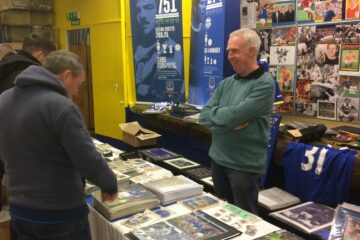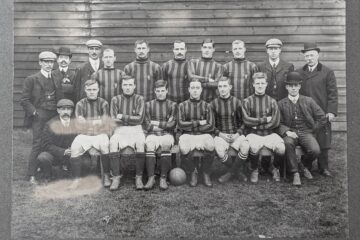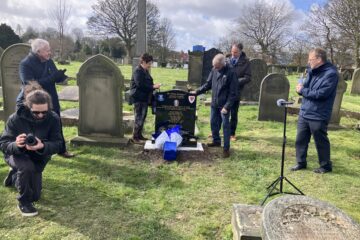Rob Sawyer
Mikael Madar was the first French national to represent the Everton Toffees, signed by Howard Kendall in 1998. The Francophone Elie Hurel, from Jersey, but with French parents, briefly lined up alongside the great Dixie Dean in the 1930s, However, a footballer with Gallic heritage was on the books for Everton in the first decade of the 20th Century.
James Brown Meunier was born on 4 April 1885 in the Birmingham area to a French-born father (Stanislas – sometimes written as Stanislass) and English mother (Jane). Little is known about Stanislas’ background on the continental mainland, but in England he had received engineering training at Birmingham Gas Works. In 1891, the family relocated to 16 Gibsons Road in Heaton Moor, a pleasant residential area located between Stockport and Manchester (some profiles erroneously show James’s birthplace as Poynton, Cheshire). The reason for the move north was Stanislas being appointed by Stockport Gas Undertaking Corporation. In his 37 years with the Stockport Corporation, he played a key role developing the mill and hat-making town’s gas main network (and, latterly, its electricity supply) – he was described as a ‘pioneer of high pressure [gas] distribution’. When he died at the age of seventy-two, he received a long, prominent obituary in the local Advertiser newspaper, which was fulsome in its praise for his accomplishments and character.
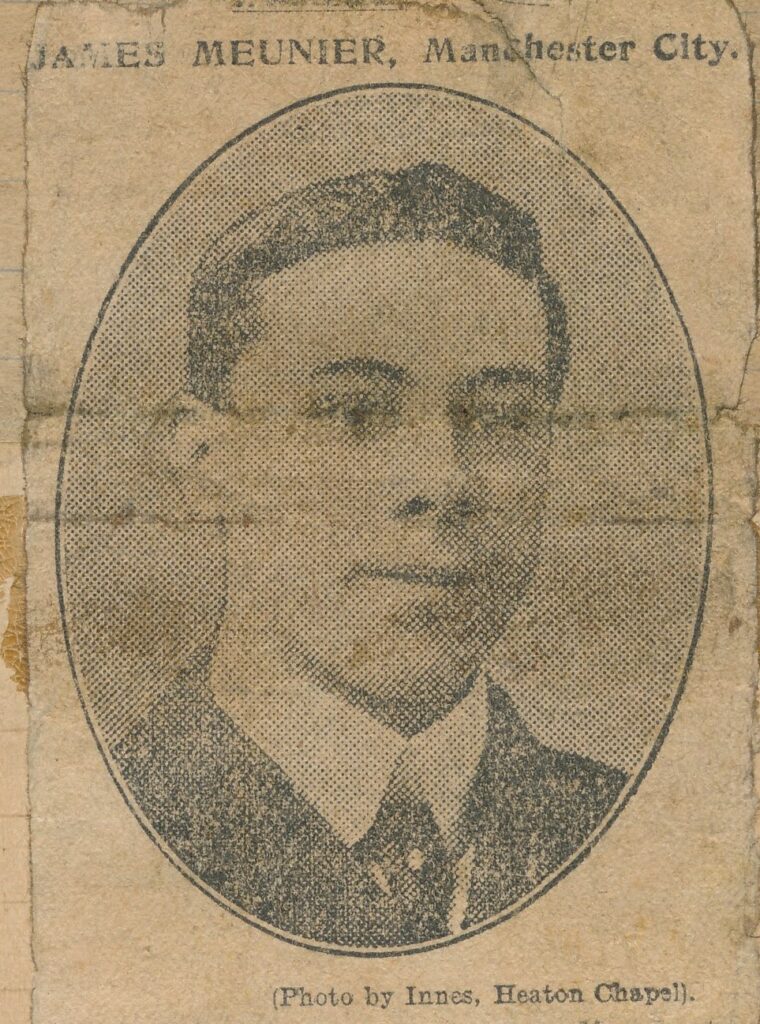
James (sometimes referred to as Jim in reports) captained the football and cricket teams at Crawford’s College (one of his brothers was a teammate) before joining Heaton Moor FC and, subsequently near-neighbours Heaton Chapel, for whom he became captain and club secretary.
He had spells as an amateur with Stockport County (making seven reserve team appearances) and Denton, before returning to Heaton Chapel. In 1904 Manchester City acquired his services, and he turned professional with the Hyde Road outfit after three months. He spent two years with the club as a left-back without making a first team appearance.
In June 1906 the defender crossed Lancashire to sign for Southport Central FC, for whom he operated primarily in defensive roles. He was also employed by the local corporation as an electrical engineer. Having suffered with (unspecified) health issues, James relocated to Canada to recuperate in the autumn of the same year. As his ship left its berth in Liverpool, he was waved off by many members of the club’s committee. Unable to settle in North America, he returned to England in time to throw his lot with the Lancashire Combination side, just in time for pre-season training for the 1907/08 season. He then became something of a utility man for the Sandgrounders, not just used in his favoured left-back position but also deployed at wing-half and latterly at inside-forward where his hard shooting proved a hit.
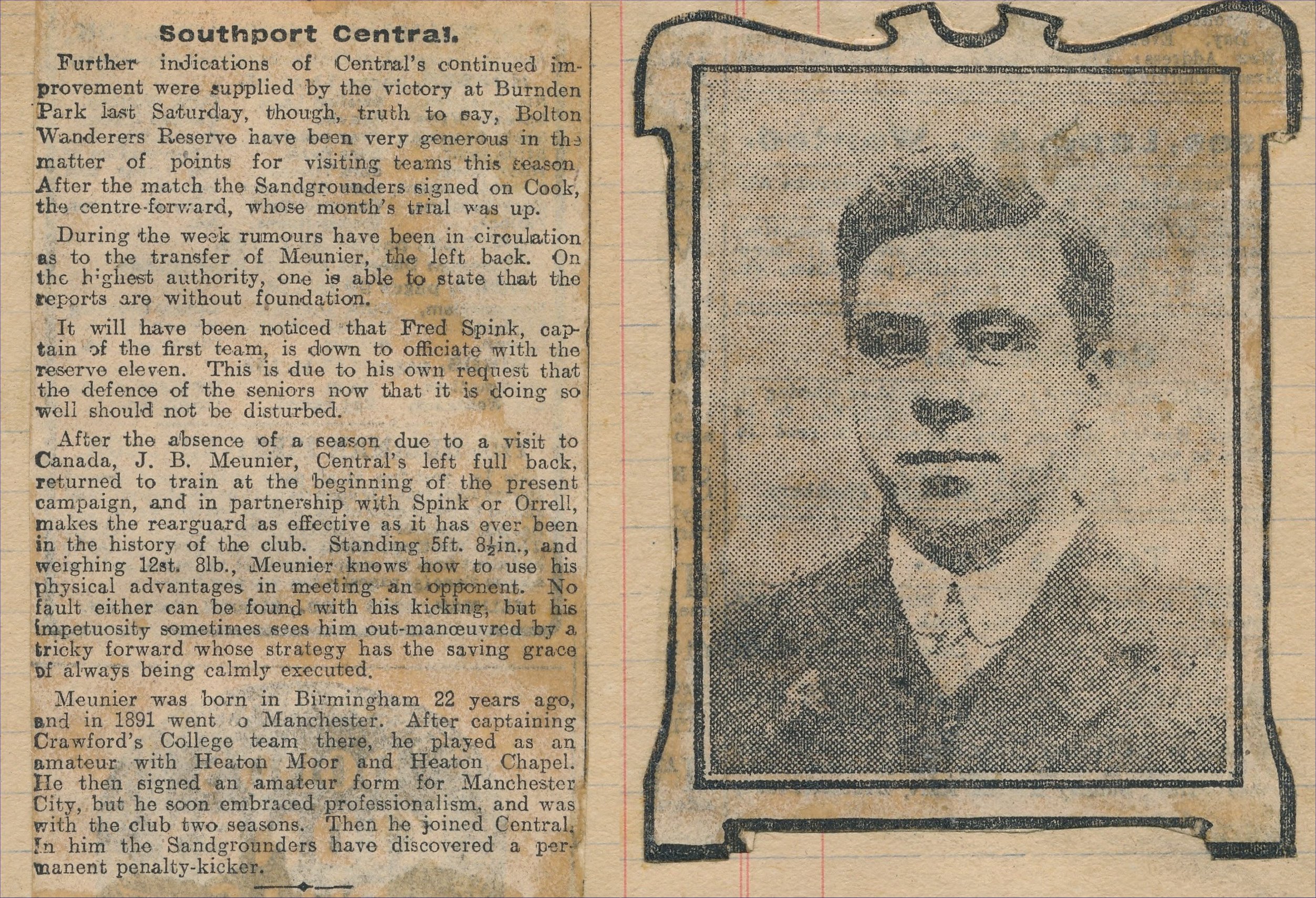
In March 1908, the full-back – described in one report as ‘vigorous with a good kick, albeit lacking in pace and prone to bouts of over-exuberance’ – joined Everton. He was 5’7” tall (some reports stated an inch taller) and weighed 12st 8 – so he was a sturdy unit. He joined a club boasting the Balmer brothers and Jack Crelley as back line options, so first time opportunities were always going to be limited. His chance finally came in November 1910 when selected at left-back in place of the injured John Macconachie.
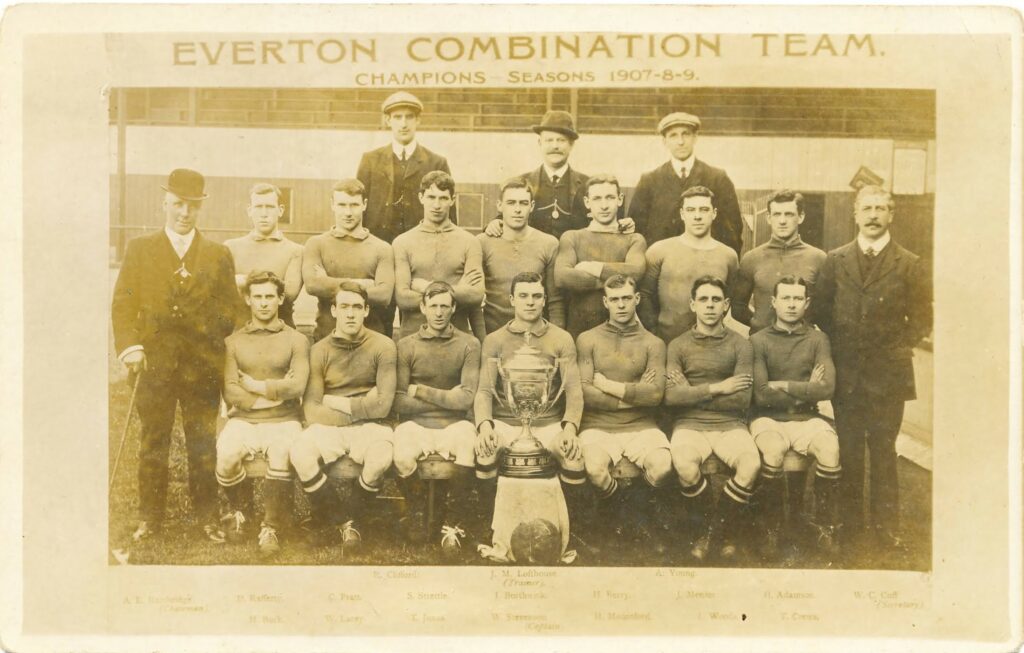

Previewing the match, The Liverpool Daily Post and Mercury reported: ‘It is pleasing to know that Meunier is being given his chance, he has plenty of weight and though he is short of experience in senior football, his debut should be an interesting success.’ It proved to be a dream debut as the Toffees defeated Blackburn Rovers, 6-1. The Liverpool Courier was full of praise for the two full-backs: ‘Clifford and Meunier, the substitutes, were never really in difficulties, but whenever they were pressed they gave a good account of themselves. Meunier, who was the better of the two, shaped exceedingly well in this his debut in League company. He kicked with confidence, and disported himself with a coolness that one might expect from backs of riper experience.’
A 1-6 reverse to the same team in the Lancashire Cup, in which he was described as ‘extremely shaky’ probably helped to keep the first team novice’s feet on the ground. He retained his place for an away draw in Nottingham and a home win over his old team, Manchester City. With Macconachie fit again James dropped to the reserves, returning for one further appearance late in the season. The third fixture of the 1911/12 season saw James selected for the side which lost away to a Manchester United side boasting Billy Meredith in the line-up. Although some criticized the defence, Jarques in Athletic News sprung to their defence: ‘I heard people say after the match that if Everton had possessed their regular backs they would have won, and a more unfair comment I have heard made. Why, Stevenson and Meunier were always doing far more effective work than the attack.’ That match brought James’s first team career at Goodison to a close, but in his time with the Blues he did collect several medals, including one as the Lancashire Combination winners.
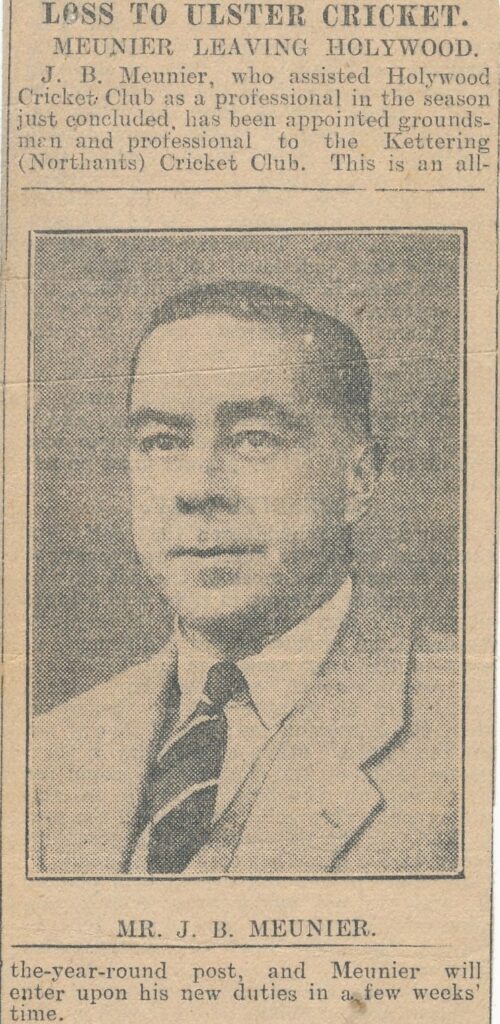
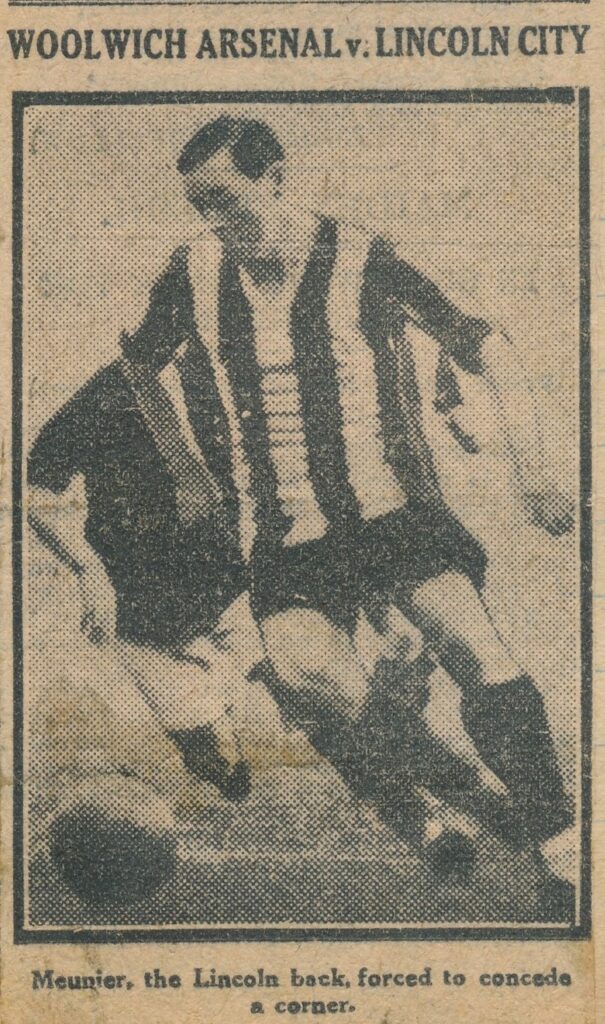
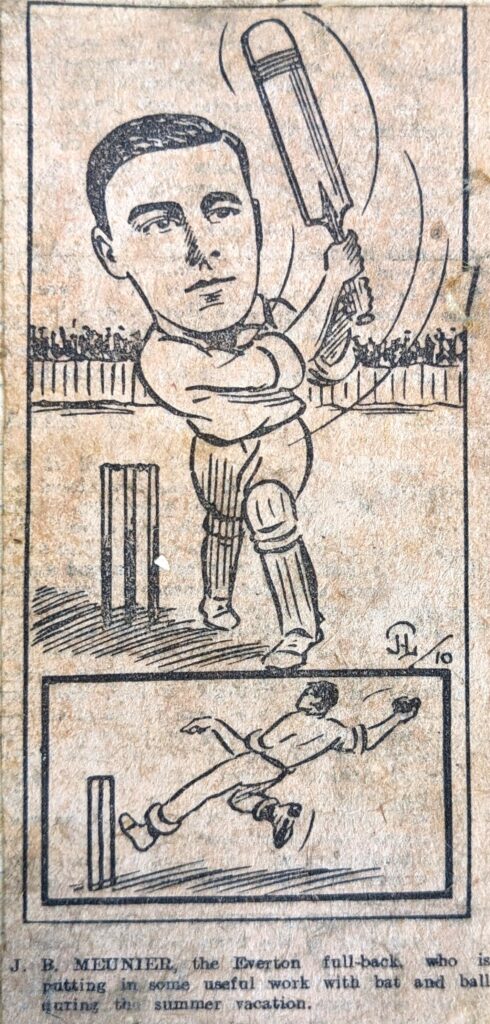
Football aside, cricket was the sport never far from his mind. He had continued to turn out for Great Moor in Stockport, while attached to Southport. Jack Sharp, his Everton clubmate and famous dual-sport international made it possible for him to spend the summer of 1910 as cricket professional at the Kings Country club in Tullamore, Ireland. Subsequently, he found employment as the professional at the New Brighton cricket club, where he performed as an all-rounder, combining middle order batting with some fast right-arm bowling. He would also turn out in the end of season matches in which the Everton and Liverpool teams competed.
In June 1912, he was made open to transfer by Everton and signed for Lincoln City of Division Two. In the summer months he was the pro at Lindum Cricket Club, nearby, and also played a few games of minor counties cricket for Lincolnshire. After two seasons, and 23 appearances, with the Imps he was signed in 1914 by Coventry City of the Southern League, but football was to be suspended as the First World War rumbled on.
He served in France and Belgium with the 13th Siege Battery of the Royal Garrison Artillery.
A remarkable letter (and accompanying photograph) has survived in the family, written in 1919 by Sister Michael at the Amiens convent, addressed to James’ wife, Ida. In it the nun extolled the virtues of James and his army comrades in looking after the convent and local residents in the course of the conflict. The sister also passed a relic of Pope Pius XI to James to give to Ida.
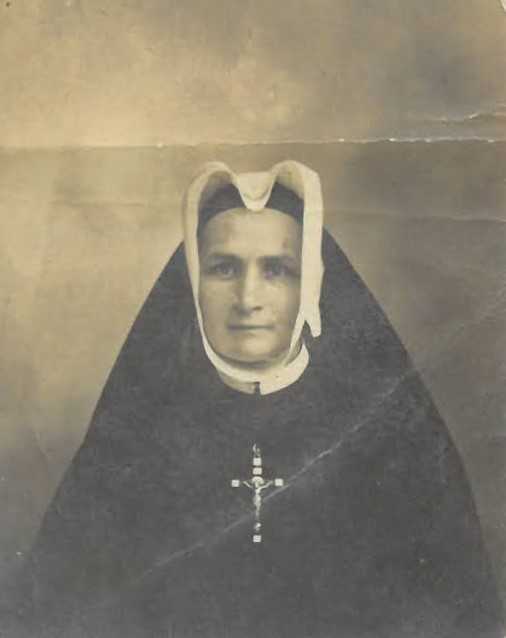

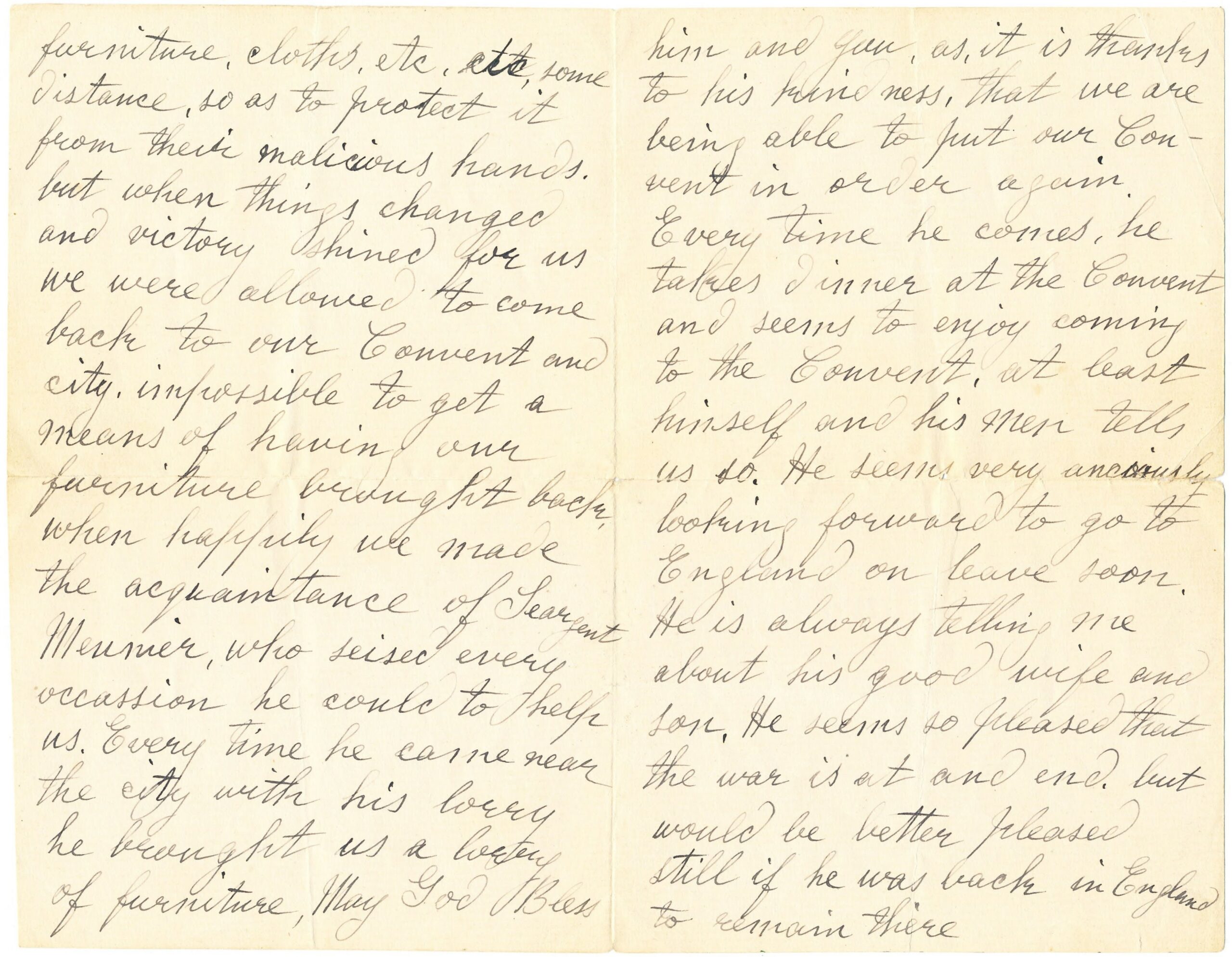
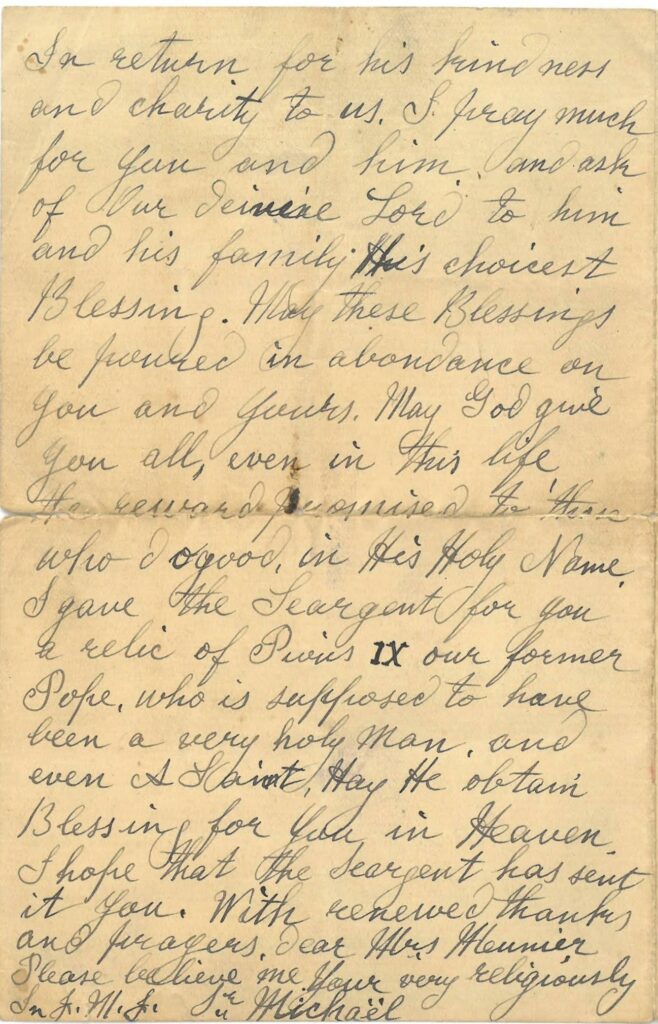
Owing to the lingering effects of a dose of gas, the demobbed James was unable to resume his football playing career after the war but was shortlisted for the position of coach of Coventry City (helped by a glowing letter of reference from Everton’s former Secretary Will Cuff). In 1920 he applied for, and was shortlisted for, the position of coach to the Sports Club of Stuttgart. A salary of 2000 marks per month was on offer – enough for him to live comfortably, but not with a family in tow. It is unclear if he accepted the offer of a boat and rail fare to go for interview.
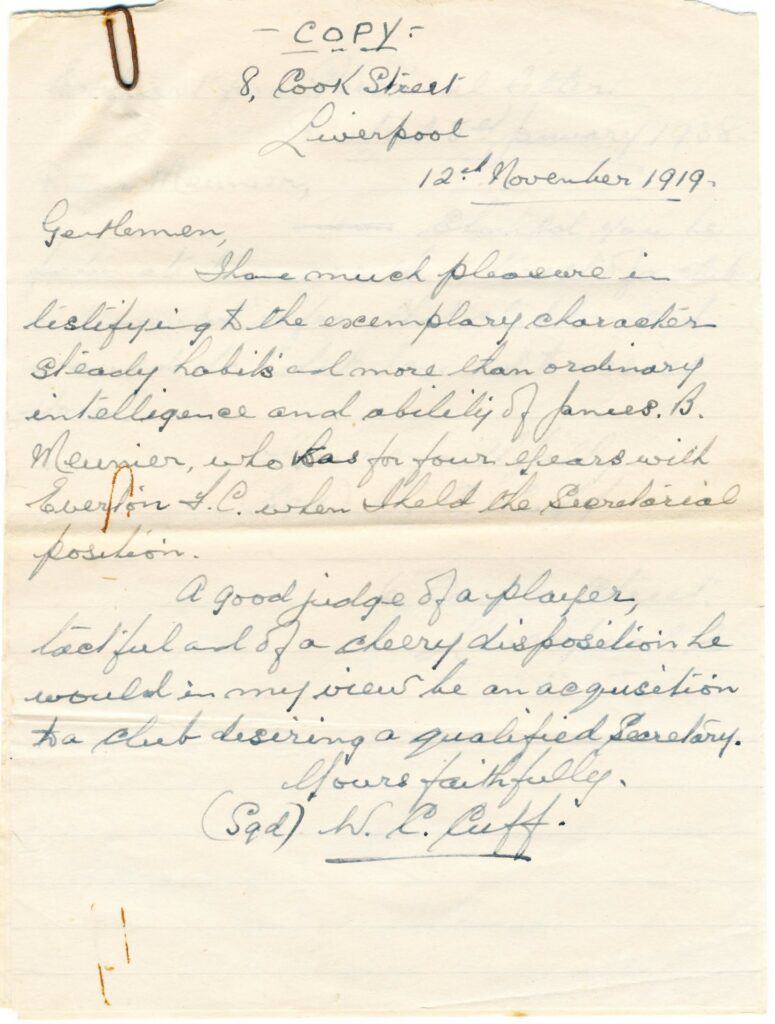
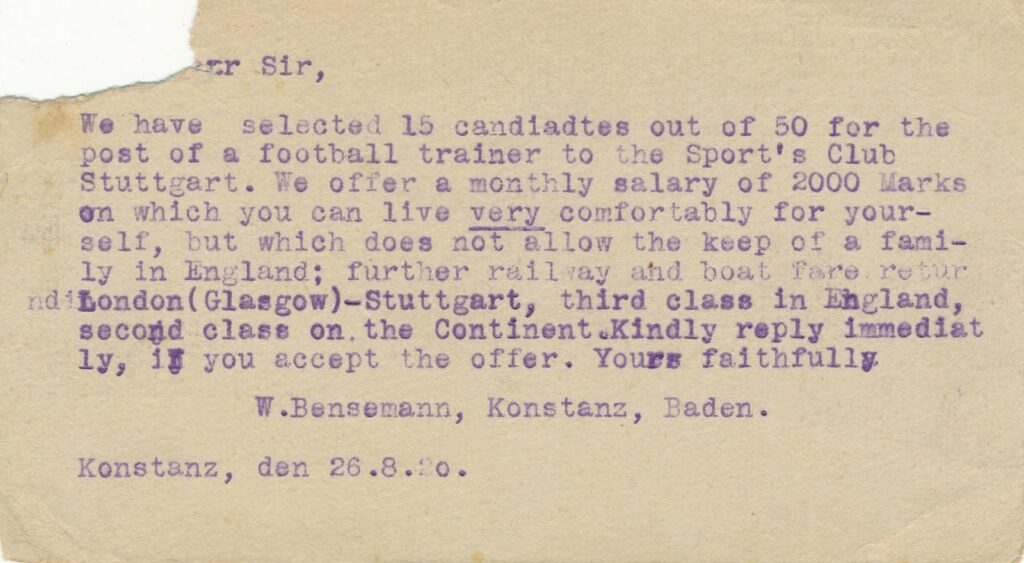
Instead, he entered the pub trade, with his wife he ran the Brown Lion Inn in Dudley and then the Green Dragon Inn on St John’s Street. In 1928, magistrates moved to block the license renewal of the latter on the grounds that the landlord had allowed unspecified ‘offenses’ to be committed on the premises. He found time to don his cricket flannels at various times for Old Hill, Stourbridge, Aston Unity and (in 1926) Dudley. Having been first approached in 1914, he finally made two appearances for the Warwickshire country team in 1920, but, sadly, failed to make a sizeable score, and had limited opportunities with the ball in his hand (by his own account, as a cricketer he tended to either score next to nothing, or a lot, in an innings). Nonetheless, he joined a select band of footballers linked to Everton who played cricket at the highest domestic level (alongside Frank Sugg, Jack Sharp and Harry Makepeace).
After two years with Dudley Cricket Club as its professional/coach (during which he had also set up a local league for works teams), James was released to take up the role of professional at Plymouth Cricket Club. On 1 June 1929 he clean-bowled all of 10 Royal Navy batsmen facing him for just 57 runs – before proceeding to hit 73 not out to secure an easy victory. He was presented with the ball, mounted on silver and inscribed with a congratulatory message from Admiral Sir Rudolf Bentinck. ‘That was the grandest day of my career’ he later recalled.
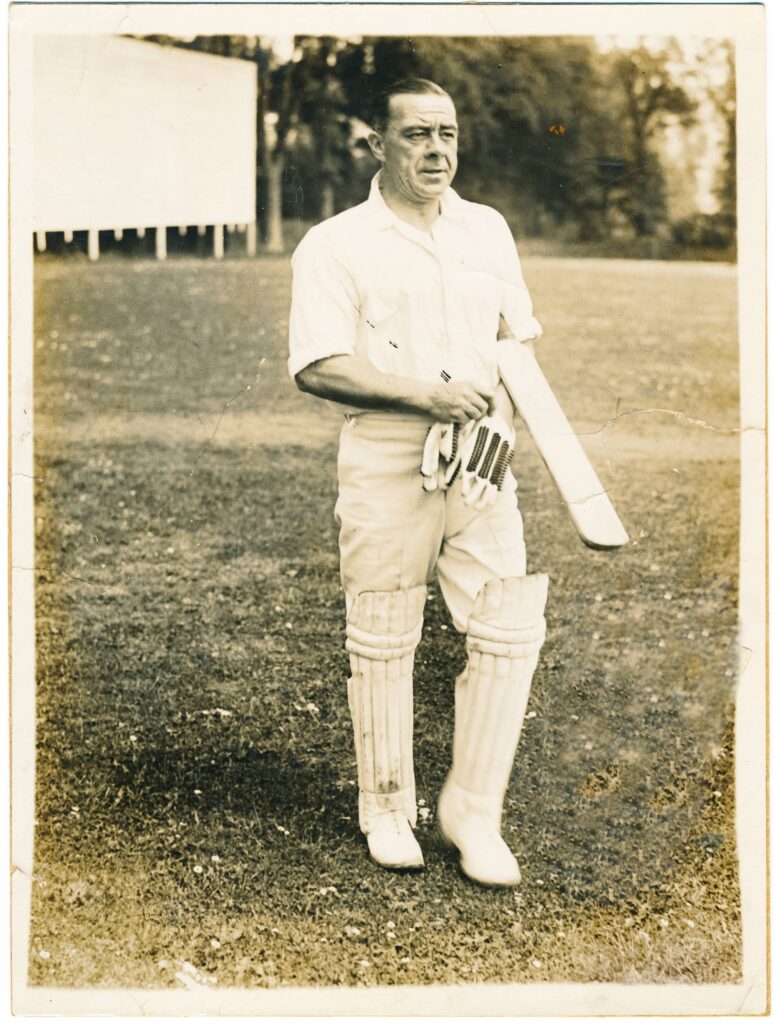

He resigned unexpectedly from Plymouth. There followed a spell back in Northern Ireland with Holyrood (he was given a free pass to watch Glentoran FC play) before he was appointed club professional and groundsman at Kettering, Northants in 1930, setting up home on Durban Road. After retiring from the game, he spent five years as a club steward in Market Harborough before performing a similar role at an establishment in Loughborough’s Market Square. He may have had other business interests – a family recollection is that he had a stake in a taxi business at some point and did some work for Vernons Pools.

The four years at Everton left a lasting impression on James. He would have occasional correspondence with the club and local sports reporters such as Ernest Edwards (Bee). In 1948 he wrote to congratulate the Toffees on the appointment of Cliff Britton – his letter drawing a comment in the matchday programme.
James’s granddaughter, Netty, recalls childhood Saturdays spent with her grandparents, with James listening to the radio at full-time, with a pencil to check his pools coupon.
James Meunier, footballer and cricketer, passed away on 30 September 1957.
Acknowledgments:
My thanks to Netty and Jeremy Diamond for the assistance and access to documents and images.
Billy Smith, bluecorrespondent.co.uk
findmypast.co.uk
Steve Johnson, evertonresults.com
Various British newspapers

